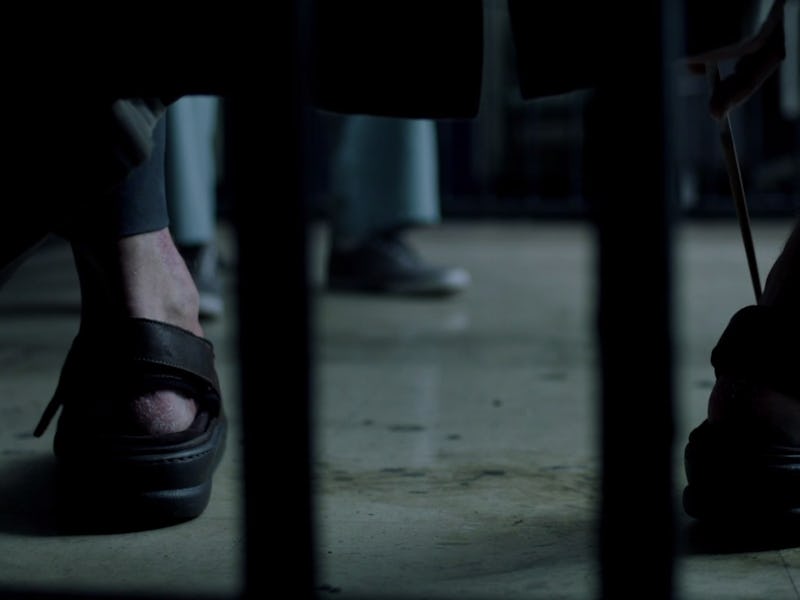Why is 'The Night Of' Mostly About John Turturro's Feet?
As we see John Stone scratching his eczema more and more, it's hard not to wonder why it is so important.

It’s obligatory: the (anti-)hero in every crime procedural or detective franchise must possess one-to-several, plot-extraneous idiosyncrasies. These traits provide both comic relief, and usually in some obtuse way, insight into the characters. At least, it sheds light on why they do their job they way they do, and perhaps, why they are attracted to such a thankless, life-consuming line of work.
John Turturro as “no fee ‘til you’re free” pickup defense lawyer John Stone in HBO’s new Richard Price-penned drama The Night Of is not your normal procedural lead: For one thing, he’s not a detective, but a lawyer; in many ways, his professional skills are only vaguely impressive. As a result, his quirks are far from normal. Two episodes in, viewers are starting to become aware: Stone’s eczema, particularly on his feet, is a major plot point of The Night Of.
It is his scarlet letter; the irritation on his feet is extreme enough that he cannot wear normal shoes or socks. We enter into Stone’s life at a stage in when his hideous feet are one of his distinguishing characteristic (we see almost every character he encounters ask about or notice them), and in a support group with other men suffering from chronic skin irritation.
In other words, Turturro’s character has had to embrace his embarrassing problem, and wear it as a badge of honor. The extent to which he’s content to sit, right diseased ankle resting on his left knee, and scratch at his foot through his velcroed sandals with a letter opener is a testament to the cavalier self-assuredness he projects in public. It becomes clear that, in the wake of his divorce — and as he’s become accustomed to his modest lot in professional life — he’s embraced his deformity. Sometimes, with people he’s questioning or sizing up, it seems to be a mode of intimidation. He’s like the shirtless dude who covers himself in peanut butter and mud at your favorite musical festival to get a better spot for My Morning Jacket.
In the most basic sense, Stone’s treatment of his eczema represents the way in which he adheres to his own set of rules both personally and professionally. It sheds, obscurely, light on why he re-enters the precinct, quixotically, to take on Naz’s (Riz Ahmed) case. Believing that someone in his position might actually do this is one of the biggest leaps of faith the viewer is supposed to make in Price and director Steve Zaillian’s show. But the show demonstrates that, despite his excessive level of empathy towards his fellow man, Stone is no superheroic litigator, and no saint. In being forced to ask for his flat fee from Naz’s parents up front in Episode 2, he reveals his limitations, and the contingent role he has to play in the system.
He also, however, shows that he is not one for bullshitting, one way or the other. He is familiar with the feeling of having walk away from something he cares about. Stone is a man on the other side of broken dreams, who has been through much worse than trying to assuaging burning, cracked feet.
"No fee 'til you're free"
But if there is a problem that is within his power to fix — or make a difference towards solving — he will do everything he can to deal with it. He attempts every method and psychosomatic device when it comes to dealing with his feet, physically and psychologically, even as it begins to seem like something he may be stuck with for the rest of his life. It threatens to make him a social outcast as much as a professional one.
But slowly and steadily, Stone analyzes and attempts to fix the problem. He exploits it in public situations to own it — to make himself feel better about it, like he can tackle it. When characters from Naz to Chandra (Amara Karan) to security guards at the courthouse watch Turturro scratch or tend to his feet, their face betray a mix of horror, disgust, awe, and often respect. Stone’s lack of fear, and worldly-wise perspective, is central to the action of The Night Of, and the drama of his blotched, burning feet is one of several microcosms of that. It’s also an unforgettable governing image for this often-brilliant show.